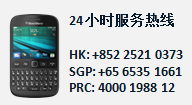Cargo damaged by sweat
Cargo sweat :
When the temperature of the cargo is below the dew point of surrounding air, the cargo cools the air and condensation forms on the cargo. Cargo sweat occurs when warm moist air enters the cargo hold containing colder cargo.
Ship sweat :
When the temperature of ship's steel plating is lower than dew point of air in hold, ship sweat occurs due to failure of replacing warmer air at load port with cooler and drier air when the vessel sails to a colder climate.
Cargo types :
Hygroscopic cargoes contain moisture such as agriculture products, fish, forest cargoes. These cargoes can absorb and release moisture both which can cause damage. There is a danger of heavy ship's sweat during carriage from a warm to a cold climate and ventilation is necessary to replace moist air with drier air. The risk of sweat from cold to warm climate is low.
Non hygroscopic cargoes contain no moisture such as steel. They do not release moisture but can be damaged if they absorb moisture. There may be a risk of ship's sweat if warm moist air exists from load port. Ventilation is necessary. If carriage from a cold to warm climate, cargo sweat is likely but ventilation is not necessary and holds should be sealed.





